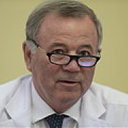[Clinical and prognostic value of inflammatory genetic markers in traumatic brain injury].
Mots clés
Abstrait
The paper analyses the published data about association of polymorphic gene markers of different bioactive agents (interleukins, angiotensin convertase, catechol-O-methyltransferase, dopamine receptors etc.) with traumatic brain injury. Analysis of the entire pool of data concerning clinical and experimental studies of association of different polymorphic markers of candidate genes with outcome of traumatic brain injury allows to conclude that IL 1alpha and IL 1beta, IL 6, catechol-O-methyltransferase, angiotensin convertase, D2 dopamine receptors in fact play important role in neuroinflammatory response to injury and recovery of the brain ant its functions. Moreover presence or absence of certain polymorphic gene markers differentially influence separate pathogenetic mechanisms of brain injury (e.g., severity of brain edema, cerebral blood flow, cognitive functions). Consequently each of the investigated genes contributes in outcome after traumatic brain injury.


